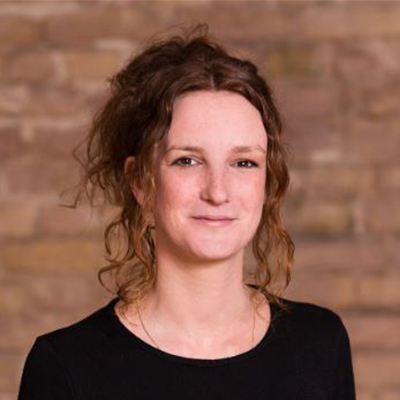The Robert Bosch Stiftung works in many regions across the globe. Through its various programs, the Stiftung has supported more than 6,000 individuals from different sectors.
Until 2017, there was no overall structure to connect the alumni across programs, sectors, and regions. When we launched the network from a central hub in Berlin, we started inviting people from across the network to join the community on- and offline. After a year of organising global events and activities from Germany, we realised there was a pressing need to decentralise our activities and that this would not be possible from our geographical location and with current staff.
A multi-node architecture strengthens the stability of a network. Tasks, decisions and responsibilities are distributed across several shoulders. This leads to more participation and scaling of offers. For this reason, we started our decentralisation process with one element of it being the appointment of regional coordinators.
As local contact points for network members,regional coordinator connect alumni in their regions through activities and events and support the implementation of ideas. They contribute significantly to the further development of the entire network. Regional coordinators are fulfilling their roles in a voluntary capacity while during the pilot phase (2018-19) each region (18) received a small budget from the International Alumni Center (iac Berlin) to support emerging activities.
In the spring of 2018, we sent a call into the network that we were looking for individuals to represent the network on a local level and act as a first contact point for alumni on the ground.
More than 80 people from the Bosch Alumni Network applied for the assignment with a letter of motivation and a strategy sketch for their respective regions. A total of 56 people were then selected to build eighteen local network structures. For example, in China, North Africa, India and various parts of Europe. Some work alone, others were put together in regional groups.
In the summer of 2018, we brought representatives of each region to Berlin for a kick-off workshop. Here, they received in-depth information about the strategic goals of the network, and were provided with information and toolkits, and supported in drawing up their first regional strategies.
The main role of the regional coordinator is to support the alumni and their work in the respective region, support the community building of the alumni in the region, and to let other people speak and make their voices heard inside the network, enable ideas of others. The position is taken on for an initial period of 18 months and regional coordinators receive a small budget to enable local meet-ups.
Key benefits:
- Regional coordinators initiate activities in their region and bring together network members and are the contact person for RBSG and iac Berlin.
- Smaller local meetings bring network members together to informally exchange and get to know each other in their city and find out more about the network as a whole.
- They act as multipliers and transfer their knowledge about the network to local groups.
Challenges:
When you start to decentralise your network there is a lot of preparation and training involved for the individuals taking on regional positions. We had to create an array of guidelines and toolkits and provide in-person and online trainings. Still, ongoing support and decision-making from the central hub is required.
Within our team we have one network coordinator in charge of the decentralisation process and of the overall budget, and is acting as the contact point for regional coordinators. This requires regular calls, email support, webinar, and organising physical meetings where training continues.
Preparation and transparency is key! If you want your local contact points to represent your network, you need to equip them with all the tools they may need and let them take control.
An example:
In addition to organising smaller alumni meet-ups in their respective regions, regional coordinators have held meetings in the United States, India, Algeria, Moldova, Portugal, and East Africa to encourage the decentralisation of the network and contributing to the overarching strategy of the Bosch Alumni Network. In March 2019, the first Bosch Alumni Forum for Africa was held in Kigali, Rwanda, and was organised by the regional coordinators from East Africa. The regional coordinators are also increasingly taking on the role of contact persons for other network members and act as central nodes of our growing network.

